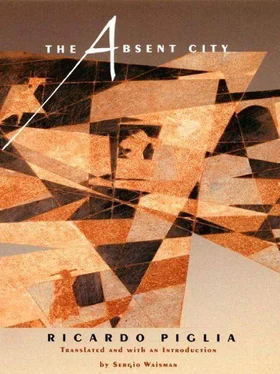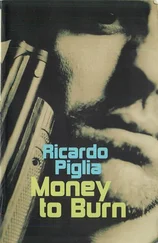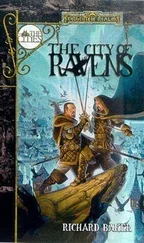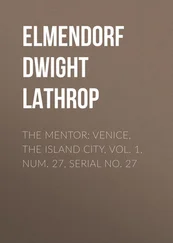“I have some material that I would like you to analyze, Mr. Junior. The newspaper must hold off, though, until we let you know that it is okay to publish the information. You get my drift?” he asked Junior once they had sat at a table in the café on the first floor, near the window facing the greenhouses. “Don’t pay any attention to what those women may have said about me. Madness takes over the heart and the truth gets lost. I’m a spy, a foreigner, I’d like to return to my native home. Now, I want you to know that I’m working for Richter, the Engineer. It is imperative that you talk to him, he is perfectly aware of the situation. He has collaborated with Macedonio from the beginning, he has the proofs and the documents. They want to nullify us, but we will resist. We,” the jockey said to Junior, “led by the Engineer, have many drafts and multiple stories. We have gotten a hold of an absolutely secret text, for example, one of the machine’s last stories, or perhaps the last, because there was a series of six unpublished stories, and one that was released, and then a series of three, and finally two more, published before she was declared out of commission.”
He spoke in a frozen whisper, his small catfish-eyes fixed on Junior’s face. He began to tell him the story of Richter, the Engineer, a German physicist who came to get away from the Nazis at the start of the war, and worked on the plans and the programming of the machine, and then became a businessman, and mounted an agricultural-industrial complex in a small town in the province of Buenos Aires that went bankrupt. “After Macedonio’s death, the Engineer withdrew to his abandoned, bankrupt factory. The installations were all held up. He prepared to wage another battle while his mother roamed around in the upper floors, because by this time,” the jockey told him, “the Engineer spoke only to his mother, who is crazy but he does not want to have her hospitalized — dedicated as he is to planning an Institute of Agro-Industrial Development and to not think about the machine. Because the Engineer always tried to keep his family problems — in other words, his mother — separate from problems that arose from his dreams — in other words, the machine.” This guy is crazy, Junior thought, he is trying to confuse me.
“How much money do you need?” Junior asked, suddenly cutting him off.
Fuyita smiled at him with his thin mustache and his fish-face, and started talking with a Korean accent.
“No, don’t need money, no, no money, your paper want information, yes, we give you facts, because we don’t want machine disactivated,” he said. “Understand?”
“Yes,” Junior said. “Okay.”
“Maybe you want I tell you how the Engineer he meet Macedonio, and how they start working together, but there is plenty time and anyway you must go to island and visit him in his factory and speak to him. Look,” he said, and showed him the documents. He placed special emphasis on a folder that contained the story that he had had delivered to the Engineer, and that the jockey had had photocopied to give to Junior with the idea, if it was at all possible, of making the first move in a counteroffensive.
“Political power is always criminal,” Fuyita said. “The president is crazy and his ministers are all psychopaths. The Argentine State is telepathic, its intelligence services can read minds from a distance. It can infiltrate the thoughts of the bases. But telepathic faculties have a serious drawback. They are unable to select and filter, they receive all kinds of information, they are too sensitive to people’s marginal thoughts, to what the old-school psychologists used to call the unconscious. Faced with an excess of facts, they expand the radius of repression. The machine has been able to infiltrate their networks, they are no longer able to distinguish between true stories and false versions. There is a certain relationship between telepathic faculties and television,” he said all of a sudden, “the technical-myopic lens of the camera records and transmits the repressed, hostile thoughts of the masses and converts them into images. To watch TV is to read the thoughts of a million people. Are you following me here?”
He was a gangster and a philosopher. Oriental traditions, Junior thought, martial arts and Zen Buddhism. He is in mourning over the emperor’s death and leaves the girl locked up in the hotel as if she were a cat. On the other side of the glass, in the greenhouse, a man was strolling through the flowers with a lantern in his hand.
“Have you seen the blue roses?” the jockey asked. “They make them in Temperley, there are three in the Museum, they are very difficult to preserve. You have to use liquid ice and silver nitrate. First came the bronze rose, but you cannot get them anymore, that site has been closed down several times by the police. They use a different excuse every time. If it were up to them, they would show up with a new search warrant each time just to stroll through the nurseries with the carnivorous plants and the poppy plants.”
They went down together in the pneumatic elevator, the jockey balancing on his right leg. In this manner he avoided setting his left one down, which he had injured in a straight-line race in Isidro Casanove. He had been riding a horse named Small Wolf, with a white spot on its forehead, in a historic meet with the undefeated horse of the widow of an Englishman who had been the director of the Argentine Central Railroad before it was nationalized. He had driven the horse as hard as he could, because the widow bet like a gypsy, and as soon as they started Small Wolf began to pant in a bloody whine, but he kept him going straight and stayed in the lead for nearly a mile, until the horse collapsed, its heart failed, and it rolled over its rider. Fuyita’s left leg was crushed by the horse’s body and there was no way to repair the tiny broken bones in his ankle.
“I don’t use a walking stick,” the jockey said affectedly as he crossed the circular room where the machine was displayed, “because I believe that medicine will be able to cure me, and I don’t want to get used to being an invalid.” Junior thought the jockey had a smooth gracefulness that was accentuated by his limp. When they stopped at the ramp that led to the exit he tried to clear his mind and not think of anything.
“A woman sent me to see you,” he said then.
“She calls you, too?” Fuyita asked. “At night? And talks to you about her son?”
“Her husband,” Junior said.
“It’s the same thing,” Fuyita said.
“You know her?” Junior asked, showing him the photograph of the young woman.
“That’s Elena,” Fuyita said. “She was the girl of his dreams. These women,” he said, “we follow them around and chase after them as if we were dumbstruck cops.” He turned toward the Museum entrance. All the lights were on, people were waiting in line to get in. “Take this,” he said, “be careful.” He handed him a manila envelope, then smiled and flagged a taxi. Junior got into the car, but after he had settled in he thought Fuyita had wanted to say something else to him, because he saw him gesturing with his arms and his lips moving. He stuck his head out the window, but the jockey waved him off because the roar of the city drowned out his voice. Besides, the cab took off down the avenue just then, and disappeared along the park heading west.
Junior laid down in the backseat. The Museum clock read three P.M. He opened the envelope. The story was called “The White Nodes.” An explosive story, the paranoid ramifications of life in the city. That’s why there’s so much control, Junior thought, they’re trying to erase what’s recorded in the streets. A light bright as a flash on the ashen faces of innocent people in the photographs of police dossiers.
Читать дальше












